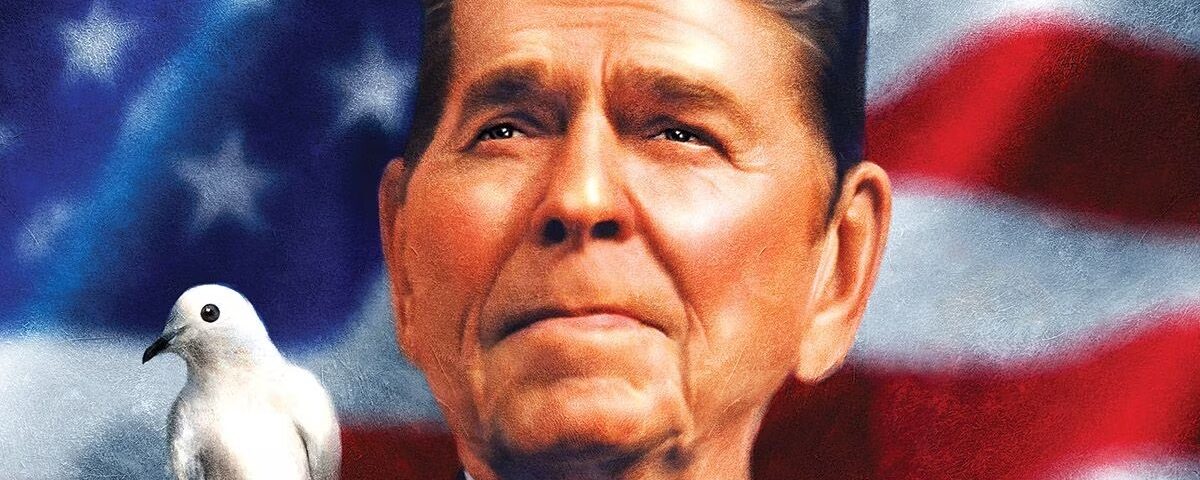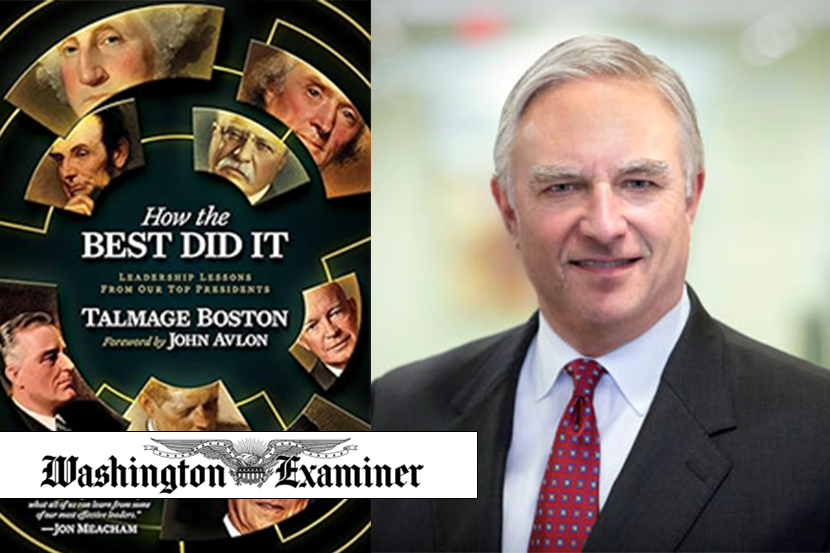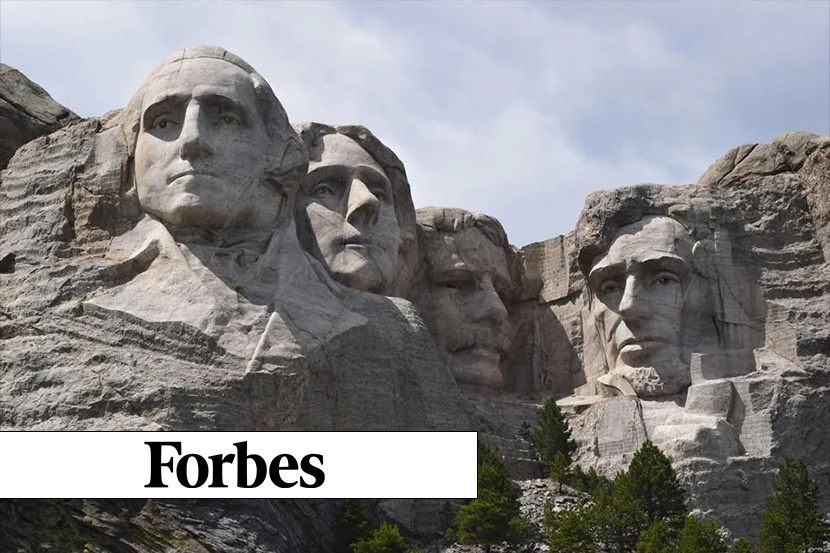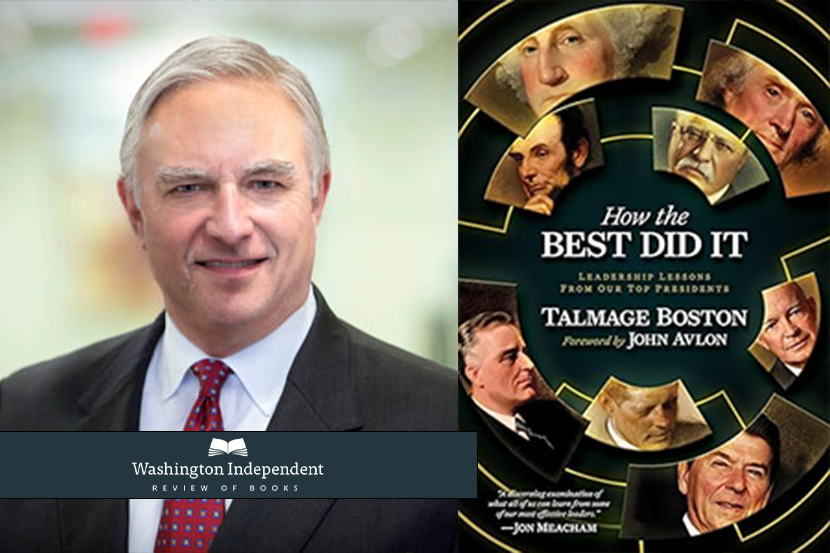GOP chose wrong candidates before. They shouldn’t do it again
Republicans nominated the wrong guys in ‘64 and ‘76. Today’s party should take note.
By Talmage Boston
Between now and their 2024 conventions, Republicans and Democrats will spend countless hours and billions of dollars in the process of choosing a candidate to face their opponent’s nominee, and then battle it out to see who gets to occupy the White House at the next inauguration on Jan. 20, 2025. Many factors will decide which candidates win the nominations, though it’s been evident over the last half-century that the person who becomes the party’s nominee is not always the person with the best chance to win in November.
The poster child for this sad-but-true fact about America’s political process is Ronald Reagan, the last president to enter the Oval Office with a landslide victory. His long and winding road to the White House began in 1964, when he gave his first nationally televised speech in support of Barry Goldwater’s ill-fated campaign a week before Lyndon Johnson slaughtered that year’s Republican nominee in the election.
Using themes he’d polished in countless presentations to General Electric’s personnel around the country from 1954 to 1962 when he hosted GE Theater on television, Reagan spoke that night on the theme “A Time for Choosing.” Here are a few highlights:
This is the issue of this election: whether we believe in the capacity for self-government or whether we abandon the American revolution and confess that a little intellectual elite in a far-distant capital can plan for our lives better than we can plan them ourselves…
You and I are told increasingly we have to choose between a left or a right. Well I’d like to suggest there is no such thing as a left or right. There’s only an up or down: Up, man’s aged old dream, the ultimate in individual freedom consistent with law and order, or down to the ash heap of totalitarianism…
You and I have the courage to say to our enemies, “There is a price we will not pay.” “There is a point beyond which they must not advance.”…
You and I have a rendezvous with destiny. [Here, quoting President Franklin D. Roosevelt.]
We’ll preserve for our children this, the last best hope of man on earth [Here, quoting President Abraham Lincoln], or we’ll sentence them to take the last step into a thousand years of darkness.
The response to the fading television actor’s performance was off the charts. Reagan had been eloquent, inspiring and optimistic about America’s future. He also conveyed a nice human touch, smiling warmly and telling stories that made points, which went straight to the heart of his captivated audience.
Stuart Spencer, a political consultant in California at the time, compared Reagan to Goldwater: “He believed basically what Barry believed. He said a lot of things Barry said, but he said them differently. Style was the difference. Barry was a hard-nosed up-front Arizona cowboy, and that’s what scared people. Reagan said things in a soft, more forgiving way and soon became the best communicator I’ve seen in my political life.”
Republicans from Dwight Eisenhower on down recognized instantly that by choosing Goldwater as their nominee, the party had bet on the wrong horse. He clearly lacked Reagan’s personal charm and public speaking skills, and the polls accurately predicted that Goldwater would soon get trounced by LBJ. Ike and everyone else saw Reagan as a political thoroughbred with the horsepower to win future national elections.
With the bounce from the Goldwater speech, Reagan translated his breakout debut into a major election victory, winning the 1966 Republican primary in the California governor’s race with almost two-thirds of the vote. He then took the battle to incumbent Democratic Gov. Pat Brown, and the national media could see a “star is born” script coming to life before their very eyes.
The rookie Republican politician used the same crowd-pleasing traits that had worked so well in the past for Democratic presidents Franklin D. Roosevelt and John F. Kennedy, which made him a powerhouse on the order of GOP presidents Theodore Roosevelt and Eisenhower.
Time magazine put Reagan on its Oct. 7, 1966, cover and marveled how, “the candidate from Warner Bros. has turned out to be the most magnetic crowd puller. A polished orator with an unerring sense of timing and his listener’s mood, Reagan can hold an audience entranced for 30 or 40 minutes while he plows through statistics, gags, and homilies.”
With his positive message regarding the need for political transformation delivered in a voter-friendly style, Reagan won 57.5% of the popular vote and 55 out of California’s 58 counties. After a successful term where he imposed law and order on protesters, reduced the state’s deficit, and achieved welfare reform, Reagan decisively won a second term in 1970, against California Assembly leader Jesse Unruh.
Unfortunately for Republicans, what had happened on the national stage in 1964 happened again in 1976. Leading up to that election year, President Richard Nixon had resigned in 1974, which caused his vice president Gerald Ford (who had replaced kickback-taking criminal Spiro Agnew in 1973) to move into the White House without ever having been on a national ticket. Not surprisingly, Ford liked the job and decided to pursue the Republican presidential nomination in 1976. Reagan believed the election might well be his last chance before voters would deem him too old to run the country, so he boldly announced he would oppose his own party’s sitting president in the 1976 Republican primaries.
Using the same traits that had worked so well in California, Reagan almost pulled off a miraculous upset. President Ford barely secured the necessary majority of Republican delegates (1,187 compared with Reagan’s 1,070), with the outcome determined on the convention floor.
After Ford gave an uninspiring acceptance speech, Reagan stepped up to the podium and delivered a concession speech so compelling it shook Kemper Arena’s rafters and caused many (if not most) Republicans around the country to recognize that, as in 1964, they’d chosen the wrong candidate as their party’s nominee. Again they were right. Ford lost to Democratic nominee Jimmy Carter in the November election by 57 electoral votes.
In 1980, the Republican Party came to its senses and chose Reagan as its presidential nominee to run against incumbent Carter. Again using his crowd-pleasing human touch and inspiring eloquence, Reagan beat Carter soundly, in large part because he received support from multitudes of “Reagan Democrats,” which caused him to win 44 states’ electoral votes and 50.8% of the popular vote while Carter got only 41% of the vote and third-party candidate John Anderson received 6.67%.
Recent attempts to add an asterisk to that election don’t hold water. Former Texas Lt. Gov. Ben Barnes recently claimed that he accompanied former Gov. John Connally on a trip to the Middle East in the summer of 1980, where Connally allegedly encouraged Iranian leaders to avoid releasing the American hostages held in Iran until after the November presidential election.
Barnes’ statements have now been thoroughly contested by Adm. Bobby Ray Inman, former director of the National Security Agency, who monitored the Iranian hostage crisis under Carter, and by University of Texas’ Clements Center executive director Will Inboden and Johns Hopkins’ postdoctoral fellow Joseph Ledford in an April 10 Op-Ed.
Even if Barnes’ statements were true, however, given the nation’s disappointment with Carter’s inability to deal successfully with double-digit inflation, rising unemployment, and the gasoline shortage that led to long lines at service stations, as well as Carter’s prior botched rescue mission in Iran, it is beyond implausible to think that Connally’s alleged misconduct materially impacted the election’s results.
After a successful first term in which he turned the economy around, in his bid for re-election Reagan embodied his campaign’s slogan: “It’s Morning Again in America.”
Democratic nominee Walter Mondale never had a chance. Reagan won 49 states (losing only Mondale’s home state Minnesota) with 58.8% of the popular vote as the number of Reagan Democrats grew and nationwide optimism based on successful political performance produced a landslide victory.
Today, in spite of his second term’s Iran-Contra scandal, Reagan is ranked as our ninth greatest president by some of the nation’s leading historians in the most recent C-SPAN poll in 2021.
In addition to restoring the nation’s confidence after Carter’s presidency, Reagan is credited with bringing an end to the Cold War through his “peace through strength” diplomacy; eliminating an entire class of nuclear armaments; strengthening America’s military forces and its international alliances; and igniting the American economy out of Carter’s stagflation “malaise.”
Two-time Pulitzer finalist historian H.W. Brands provides this explanation for Reagan’s continued popularity: “The reason he remains an icon for Republicans and conservatives is because Reagan was that rare, almost unique example of a cheerful conservative. Conservatives generally grumble about how the world is going to hell in a handbasket. The essence of conservatism is: hold what we have because change is usually for the worse. Reagan, on the other hand, firmly believed America’s brightest days were ahead of it.”
The Reagan story should have application to the upcoming 2024 presidential election, likely to be an extremely close race given the current even split between the two parties (a 51-49 Democratic majority in the Senate and a 222-213 Republican majority in the House), and the Gallup Poll’s February 2023 conclusion that 44% of Americans now view themselves as “independents.”
Friendly advice: When it comes time to cast a ballot for one’s chosen party’s candidate in the primary, in light of the Republican defeats in the 1964 and 1976 elections, voters should support the candidate with the most appeal to independent and potential crossover voters in the November election.
Hint: The candidate who best fits that description is not likely to be the angriest mudslinger who focuses primarily on denigrating his opponent. The candidate with the most appeal to independents in November 2024 will likely be the person who comes closest to matching Ronald Reagan’s traits — not a hard-nosed extremist like Goldwater, or a well-intentioned inept communicator and long-time team player like Ford, but rather someone who projects so much optimism it becomes contagious; speaks with sincerity and some measure of eloquence; smiles with sincerity; displays humor and self-deprecation; and most importantly expresses convictions that line up with the values of the parties’ middle sectors and independent voters.
Republicans went down to defeat in 1964 and 1976 because they nominated the wrong guys. When they wised up and finally nominated Reagan in 1980, their fortunes changed. Voting for the candidate who will not only carry his party’s flag but will also have the most appeal to independent and potential crossover voters should allow one to learn a lesson from history and achieve his desired outcome on Nov. 5, 2024.
We welcome your thoughts in a letter to the editor. See the guidelines and submit your letter here.





